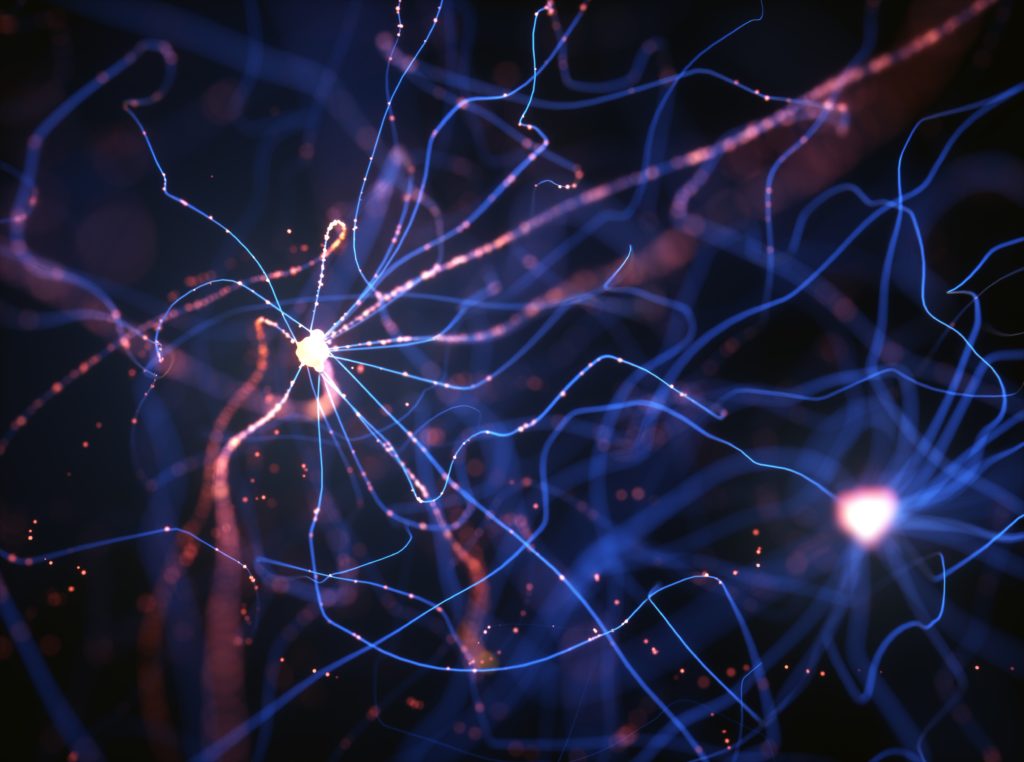Quick Hits
Daily brief research updates from the cognitive sciences

This is pretty fascinating research. Motivation after all is an important human concept, most of us would probably want more of it, and it is important for many positive life outcomes. And though we may consider motivation a purely psychological concept, it is driven by different chemicals and transmitters in the brain in different regions.
This research out of the EPFL in Lausanne Switzerland, started off by looking at how your brain breaks down molecules for processing, into metabolites, and how these influence motivation. As I have just said motivation is after all a biochemical reaction in certain parts of the brain which then energises you psychologically and physically to do something.
Another part of this equation is the role of oxidative stress – as the brain, or body, works different chemicals are released that can then impede and inhibit cellular functioning. So, these researchers looked at glutathione (GSH) in the brain – this is the brain’s most important antioxidant.
The theory would be that higher levels of this in an individual’s brain may protect against build-up of metabolites and stop motivation from decreasing. To test this, they then turned to rats and human beings. Using a very scientific sounding procedure of proton magnetic resonance spectroscopy they managed to measure levels of GSH in a region of the brain called the nucleus accumbens. This region sitting deep in the brain is strongly associated with motivation and getting to action.
What they found is that yes, higher levels of GSH correlated to better performance in rats and humans, see we are similar, on effort-related motivational tasks.
So far so good, but as we know correlation is not the same as causation – it could be something else that is causing the motivation and the higher GSH levels are just a happy coincidence. The rats were then given micro injections of a GSH blocker – not for the humans – and yes, motivation dropped. As in they performed worse in effort-based, reward-incentivized tasks.
But more, can an increase also improve motivation? For this the researchers gave the rats N-acetylcysteine (NAC), a precursor (mearning that the brain can process more GSH) to GSH, and yes, the rats performed better on the same type of tasks. This is more interesting for us because NAC is present in high-protein foods such as meat, fish, and seafood and in lower quantities in eggs, whole-grain foods and some vegetables (broccoli, onions, and legumes, for example). It is also a nutritional supplement that anyone can buy over the counter.
The researchers did note that the effect did seem to be mediated by specific type of neuron in the nucleus accumbens.
But the major take away for now is that GSH is important for motivation by reducing the impacts of oxidative stress – so keeps you motivated for longer. And you can increase this by eating the right foods or potentially by taking NAC as a supplement.
Don’t expect too much but nevertheless good to know!.

Andy Habermacher
Andy is author of leading brains Review, Neuroleadership, and multiple other books. He has been intensively involved in writing and research into neuroleadership and is considered one of Europe’s leading experts. He is also a well-known public speaker, speaking on the brain and human behaviour.
Andy is also a masters athlete (middle distance running) and competes regularly at international competitions (and holds a few national records in his age category).
References
Eva Ramos-Fernández, Ioannis Zalachoras, Fiona Hollis, Laura Trovo, João Rodrigues, Alina Strasser, Olivia Zanoletti, Pascal Steiner, Nicolas Preitner, Lijing Xin, Simone Astori, Carmen Sandi.
Glutathione in the nucleus accumbens regulates motivation to exert reward-incentivized effort.
eLife, 2022; 11
DOI: 10.7554/eLife.77791
More Quick Hits
When Cognitive Games Do Make You Smarter
Quick HitsDaily brief research updates from the cognitive sciences ognitive games have been around for many years now – the first wave of popularity came with Nintendo’s “brain jogging” almost two decades ago now. These games have claimed that they...
How Walking Makes Some People “Super Taskers”
Quick HitsDaily brief research updates from the cognitive sciences hose of you who have followed my writing will know that I have reported regularly on the amazing benefits of exercise and walking on the brain, body, and cognition. However, though...
Older People are Better at Responding to Distress
Quick HitsDaily brief research updates from the cognitive sciences e may have some cliched ideas of older people like the grumpy or angry old man, or woman (but it is often a man). However, research continually shows the opposite. Namely that...
Guided Play Highly Effective for Learning in Children
Quick HitsDaily brief research updates from the cognitive sciences ood news for some and bad news for traditionalists in education. Some believe that starting education early and using classical and traditional learning activities is the best way...
Childhood Fitness Improves Mid-Life Cognition
Quick HitsDaily brief research updates from the cognitive sciences always find these long-term studies fascinating. Imagine launching study and not knowing what the outcomes will be for another 30 years! This is precisely what this study did. It...
The Truth of “Work Hard, Play Hard”
Quick HitsDaily brief research updates from the cognitive sciences e all know the phrase “work hard, play hard” and this drew my attention when I stumbled across some research actually looking into this - and whether this is a good thing or bad...






